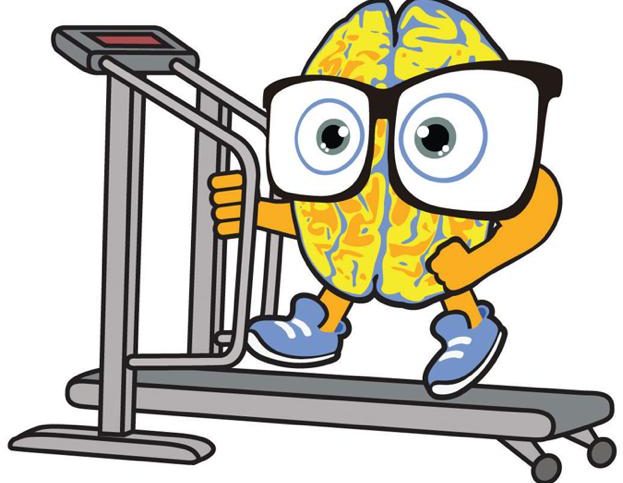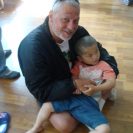Prompted by his personal experiences, Dr. Naif Al Mutawa was motivated to create Terkeez to fit the needs of his child and help him overcome the difficulties he experienced at school. He explains, “Academically, he was consistently under-performing, and his teachers regularly pointed out that he needed to learn to focus and concentrate, even though he is a bright child. “Upon trying out many programs, Dr. Al-Mutawa wanted to help his child succeed independently and without a constant helping hand, adding, “There has to be equal growth in the underdeveloped areas of the brain. There wasn’t any program like that available here, so I started one.”
Essentially, Dr. Al Mutawa wanted to develop a program that answered his child’s needs only to find that he wasn’t alone. There are so many bright children, but their brilliance didn’t show in their academics or school experiences, hence his vision to create a program that encouraged independence, and fostered self-driven success. Children, just like adults, need to feel like they have some control – and therefore a sense of accomplishment – in order to be willing to continue to make an effort. Dr. Al Mutawa tells us more about Terkeez in this special interview.
What is the inspiration behind the name Terkeez, and what does it mean in relation to the organization’s goals?
Terkeez represents the Arabic translation for ‘focus.’ There are a variety of reasons why children may have difficulty focusing. The most obvious, of course, is a learning disability called Attention-Deficit Hyperactivity Disorder (AD/HD). This is not the only reason, however. Technology encourages the development of ‘fractured attention.’ On average, the screen on a digital gadget changes every 15 seconds! Additionally, unless the family specifically sets aside time to teach and model how to concentrate and persist in completing tasks, children don’t actually know how to do this. The ability to focus in any aspect of life is the key to success. At Terkeez, we aim above all to improve a child’s focus and concentration through teaching, modeling and opportunity to practice.
Can you tell us about the 3-part plan for drawing out children’s potential?
The Terkeez Brain Training program has three components, each of which aims to develop different skills. Neuro-feedback/brain training focuses on improving focus and concentration, curbing distractibility, and teaching persistence through problem-solving. In this session, the ‘Terkeezsters’ work alone on a laptop. For the remaining sessions, the children are grouped, and the learning is done together. In Executive Functions the focus is on problem-solving, planning and organizational skills, along with time management and memory development. In Social Skills and Emotional Development, the major focus is group interactions within the context of social-skill building exercises and emotional intelligence games.
Are these attributes currently being underserviced locally and/ or what makes this different from regular tutoring?
It would seem so. We support development in areas that research data show are generally delayed in children with focus/attention issues. This is very different from tutoring. Tutoring is a continuous process in which a child relies upon a tutor’s assistance and supervision to improve academic performance. This actually encourages the development of learned helplessness – without the tutor’s presence, the child is commonly unable to motivate him/herself to do the work required. There are other programs out there, but Terkeez is unique in that our ultimate aim is to “work ourselves out of a job.”
How do you differentiate the training and learning methods based on the child’s needs?
The neuro-feedback component is self-regulating. In other words, when a child accomplishes a task easily, the algorithm automatically adjusts that game component to make it more difficult. The opposite is true as well. In the Executive Function and Social Skills components, differentiation happens through small groups (maximum 12) and an age range that may spread from 6 to 14. The ideal exercise has all the children working together to complete tasks that stretch and grow their ability to be strategic, cooperative, collaborative and solution-focused.
Is there a set length of time for the program or is it ongoing?
While there are different packages and we offer significant flexibility, research has demonstrated that the ideal for improvement is three sessions per week, equal to 36 sessions (approximately three months). After that, if the child’s level of performance is satisfactory, then the maintenance phase would begin. Maintenance consolidates the gains the child has made, and is two sessions per week for an additional 16 sessions (approximately two months). After that, it’s up to the family. Brain training is like the gym – gains made have to be maintained. The brain grows with exercise and atrophies with inactivity.
What projects are you currently working on/what’s next?
We’re working on expanding our program to include four and five-year-olds in a school preparation program. The intent is to target focus/attention issues, and work with these little ones to develop gross and fine motor skills, organizational skills, and generally prepare for the classroom. Of course, when a child turns six, s/he would “graduate” into the full Terkeez program.
What do you see as the tangible benefits for both the children and the parents?
In the short term a better report card and, ultimately, a better academic experience overall. Children who completed the program manifested an average gain of 4 years and 3 months on the Test of Cognitive Skills compared to 4 months’ improvement for the control group; and an average gain of 1 year and 11 months increase on the Test of Achievement compared to an average 1 month increase for the control group. This is significant, especially when one considers that when the children attend the Terkeez Brain Training program, they aren’t “doing” school. They think they’re playing games and making friends! Sounds like a “win-win” situation to me.
For more information, visit www.terkeez.com , find them on Facebook: Terkeez Brain Gym or call 6705 1122.








